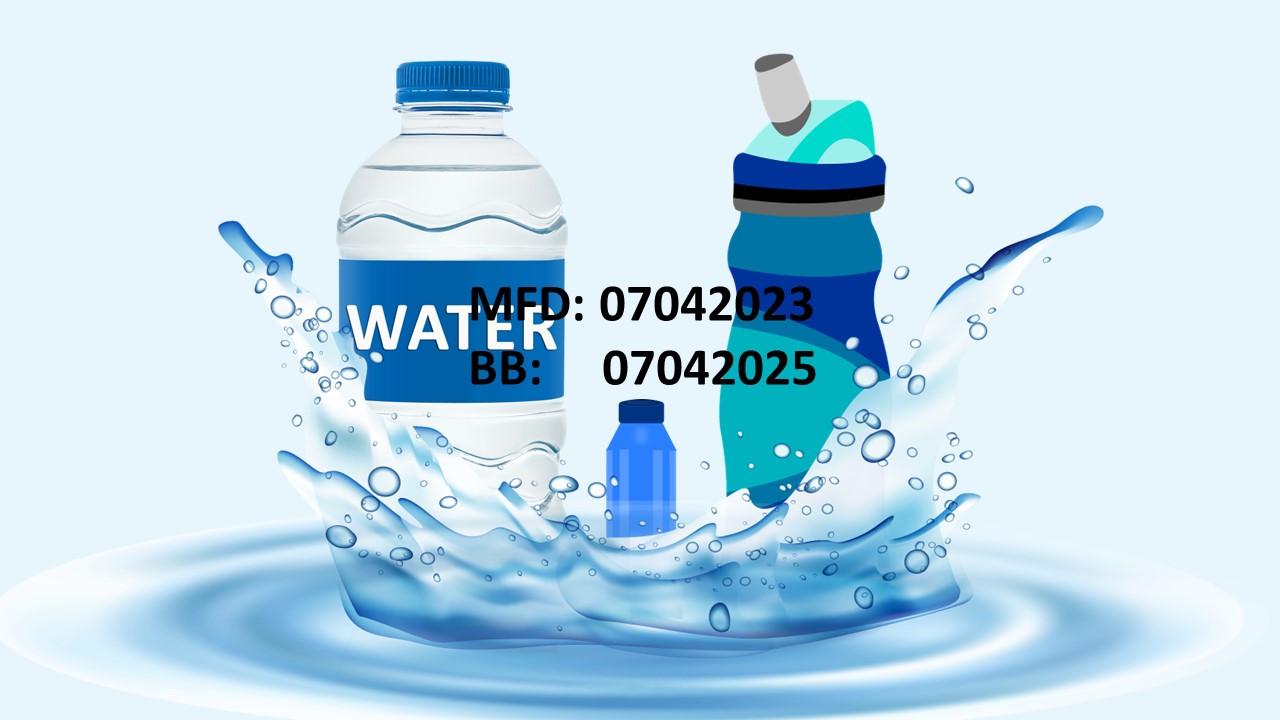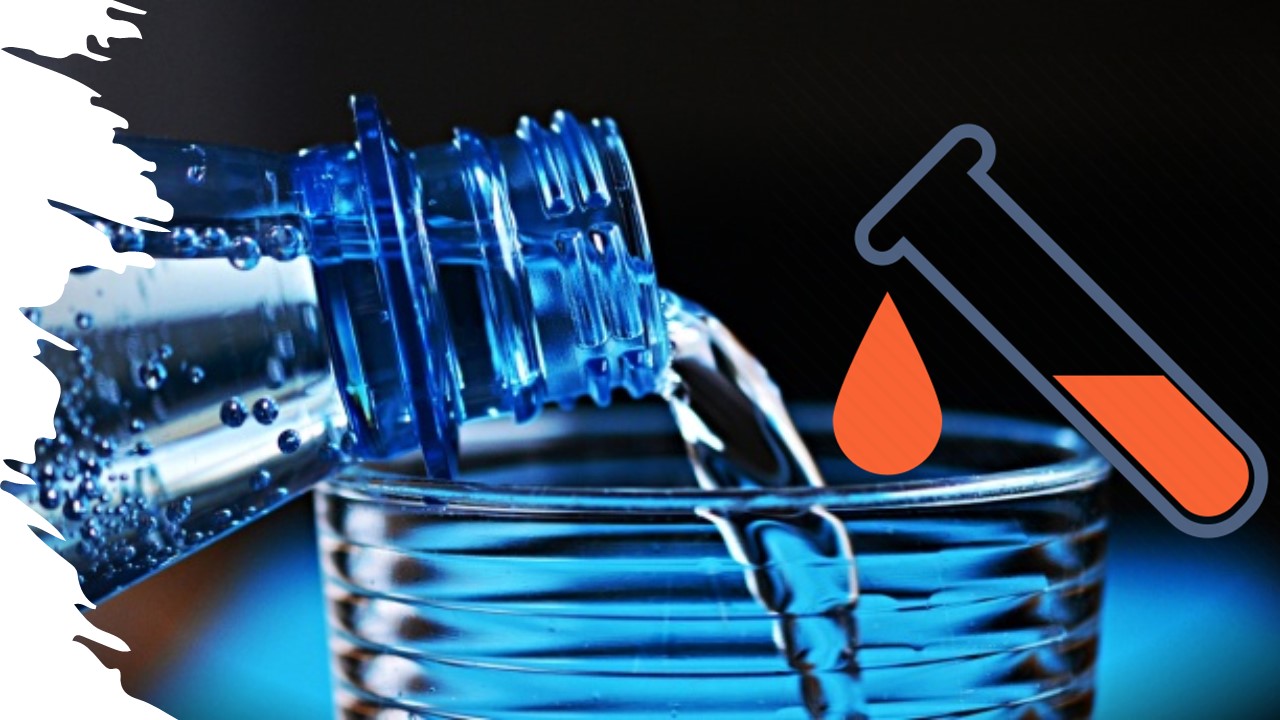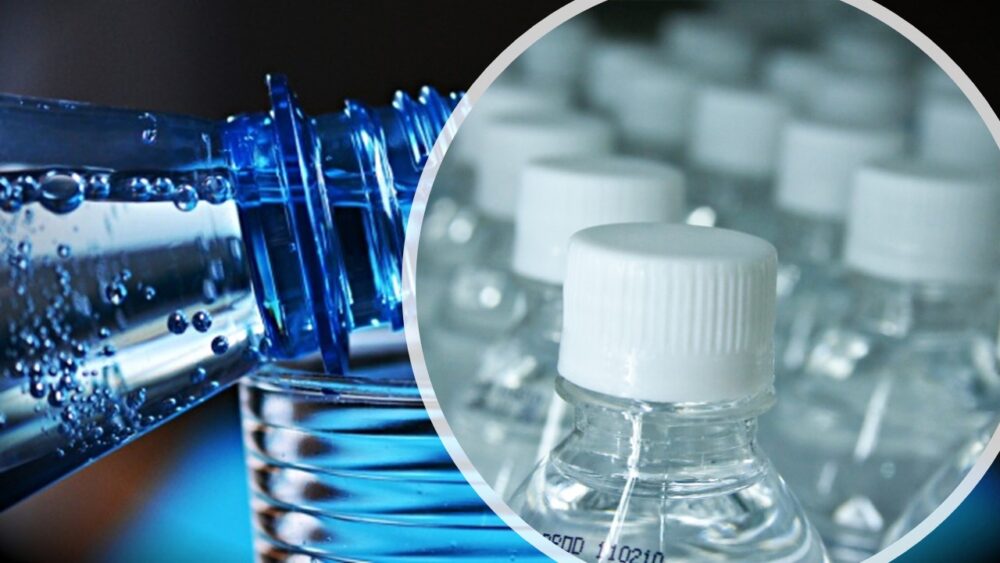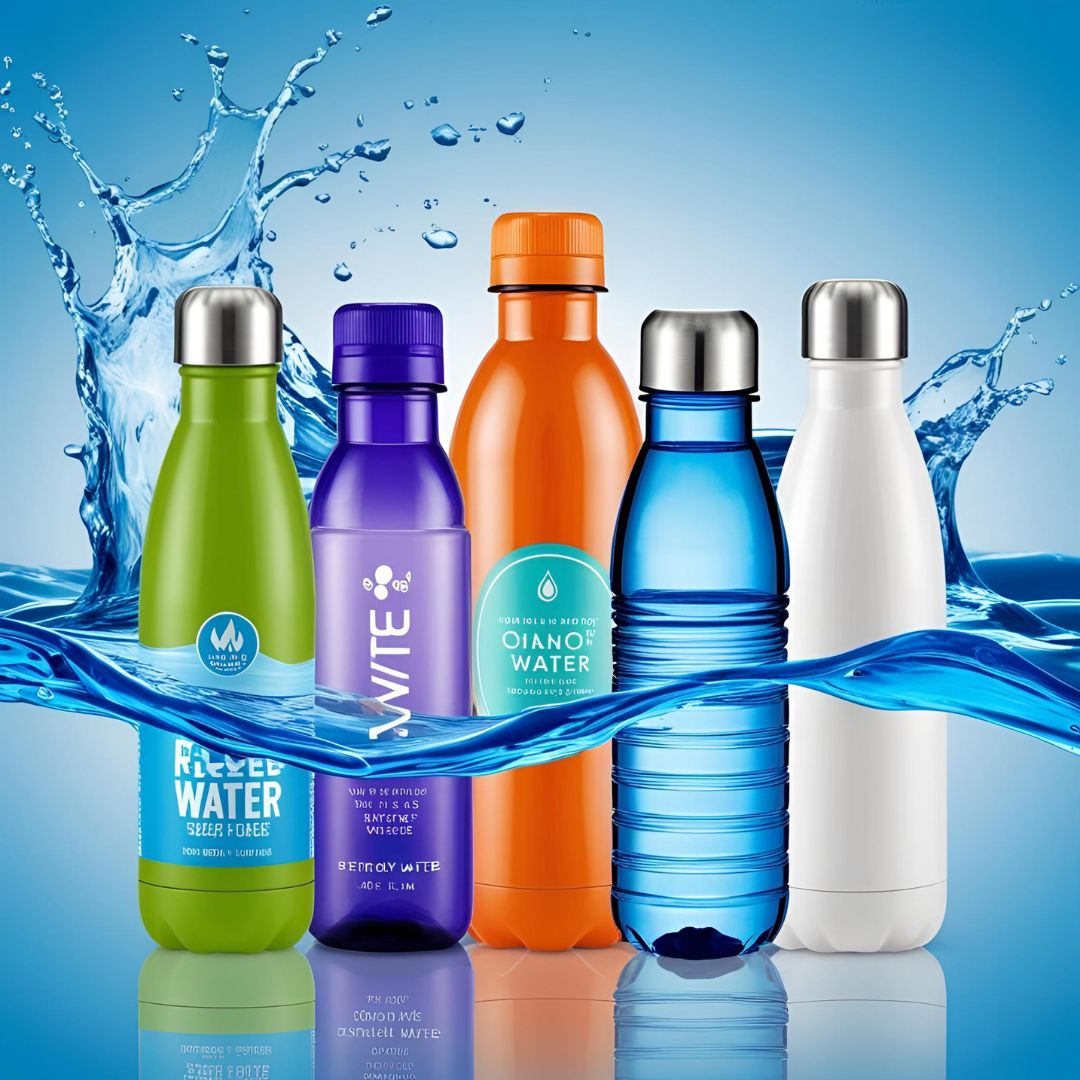Why Does Bottled Water Tastes Like Plastic – Explained
Does your bottled water tastes like plastic? Water is an essential part of our daily lives, and staying hydrated is crucial to our health and well-being. With so many options available, many people turn to bottled water as a convenient and safe source of hydration.
However, not all bottled water is created equal, and some brands may have an unpleasant aftertaste of plastic, which can be concerning. Moreover, plastic-tasting water may contain harmful chemicals like bisphenol A (BPA) that can have adverse health effects over time.
In this article, we will explore the causes of plastic-tasting water and the potential health risks associated with it. We will also provide practical solutions to help you avoid drinking water that tastes like plastic and ensure that you stay hydrated with safe and high-quality water. So, let’s dive in.
Exactly Why Does Bottled Water Tastes Like Plastic
Bottled water is a convenient and safe source of hydration, but sometimes it can have an unpleasant plastic taste. This can be caused by several factors, including the type of plastic used in the bottle, exposure to high temperatures, and prolonged storage.
Let us explore the different reasons why bottled water may taste like plastic.
Here’s some more information on each of these causes:
1. Type Of Plastic Used In The Bottle
Some types of plastic can leach chemicals that can affect the taste and quality of water. For example, polycarbonate plastic, which is commonly used in reusable water bottles, can leach bisphenol A (BPA), which has been linked to various health concerns.
Polyethylene terephthalate (PET) plastic, which is commonly used in disposable and reusable water bottles, may also affect the taste of water if not stored or cleaned properly.
2. Leeching Of Phthalates
Phthalates are a type of chemical used in some plastic products, including water bottles, to increase flexibility and durability. However, they can leach into water over time, affecting its taste and potentially posing health risks.
Some studies suggest that phthalates can interfere with hormones in puberty, cause the development of testicular dysgenesis syndrome, fertility disorder in male and female, cancer and may be linked to other health problems.
3. Exposure To High Temperatures
When plastic water bottles are exposed to high temperatures, such as in a hot car or during transportation, the heat can cause chemicals in the plastic to leach into the water, affecting its taste and potentially posing health risks.
4. Prolonged Storage
When water is stored in a plastic bottle for an extended period of time, it can absorb chemicals from the plastic, affecting its taste and potentially posing health risks. This is especially true if the water is exposed to sunlight or high temperatures during storage.
By understanding the different causes of plastic-tasting water, you can take steps to avoid or minimize your exposure to these factors and ensure that your drinking water is safe and enjoyable to consume.
RELATED: Why Does My Water Bottle Smell Like Wet Dog
Health Risks Of Drinking Bottled Water That Tastes Like Plastic
Exposure to chemicals like bisphenol A (BPA) and phthalates, which are often found in plastic products, including water bottles, can potentially pose health risks. Here are some of the potential health concerns associated with drinking water that tastes like plastic:
1. Hormonal disruptions: BPA and some phthalates are known endocrine disruptors, which means they can interfere with hormone levels and functions in the body. Exposure to these chemicals may be linked to reproductive problems, such as infertility, and may also increase the risk of certain cancers.
2. Developmental and reproductive issues: Exposure to BPA during pregnancy and early childhood has been linked to developmental and reproductive problems in children, such as early puberty, behavioral issues, and decreased fertility.
3. Increased risk of obesity and diabetes: Some studies have suggested that exposure to BPA and other chemicals found in plastic may increase the risk of obesity and type 2 diabetes.
4. Other health concerns: In addition to the above concerns, exposure to BPA and other chemicals found in plastic may be linked to a range of other health problems, including cardiovascular disease, liver problems, and respiratory issues.
While the health risks associated with drinking water that tastes like plastic may vary depending on the type and amount of chemicals present, it is generally recommended to avoid prolonged exposure to these substances to minimize the risk of adverse health effects.

How To Avoid Drinking Bottled Water That Tastes Like Plastic
There are several practical solutions that you can implement to help avoid drinking bottled water that tastes like plastic. Here are some options to consider:
1. Drink Bottle Water Within A Few Days Of Purchase
Drink your bottled water within a few days of purchase and store it in a cool, dry place away from direct sunlight. This will help prevent the phthalates from leaching into the water.
2. Use Glass Or Stainless Steel Water Bottles
To reduce exposure to chemicals found in plastic, consider using glass or stainless steel water bottles. These materials are typically free from BPA and phthalates and can help preserve the taste and quality of water.
3. Store Water In A Cool And Dry Place
To prevent exposure to high temperatures and minimize the risk of chemicals leaching into water, store water bottles in a cool and dry place, away from direct sunlight or heat sources. This can help maintain the quality and taste of the water.
4. Regularly Replace Water Bottles
Over time, plastic water bottles can develop scratches and wear, which can make it easier for chemicals to leach into the water. To minimize exposure to these substances, consider regularly replacing water bottles, especially if they have been used for an extended period of time.
5. Consider A Water Filter
Installing a water filter at home can help remove impurities and chemicals from tap water, improving its taste and quality. This can be a cost-effective and environmentally friendly alternative to bottled water.
6. Look For BPA-Free And Phthalate-Free Water Bottles
If you prefer to use plastic water bottles, look for products that are labeled as BPA-free and phthalate-free. These bottles are typically made from materials that are less likely to leach chemicals into the water.
By implementing these solutions, you can reduce your exposure to chemicals found in plastic and ensure that your drinking water is not only safe but enjoyable to consume.
How To Avoid Bottled Water That Tastes Like Plastic?
One way to ensure that bottled water is free from harmful chemicals and has a good taste is to look for products that are labeled as “purified” or “spring” water. These types of water are typically filtered to remove impurities and are less likely to have a plastic taste.
Additionally, it’s a good idea to look for bottled water that is certified by third-party organizations, such as the NSF International or the Water Quality Association. These organizations provide certifications that indicate that the water meets specific safety and quality standards.
It’s also important to read the labels and check the plastic codes on bottled water. Look for bottles with a code of 1, 2, 4, 5 or 6, as these types of plastic are less likely to leach chemicals into the water.
Bottles with a code of 3 or 7 may contain harmful chemicals like BPA or phthalates and should be avoided if possible.
Ultimately, the best way to ensure that you’re drinking safe and high-quality water is to invest in a high-quality water filtration system at home and avoid single-use plastic bottles altogether.
RELATED: Why Does My Water Bottle Smell Even After Washing – Should You Be Concerned?
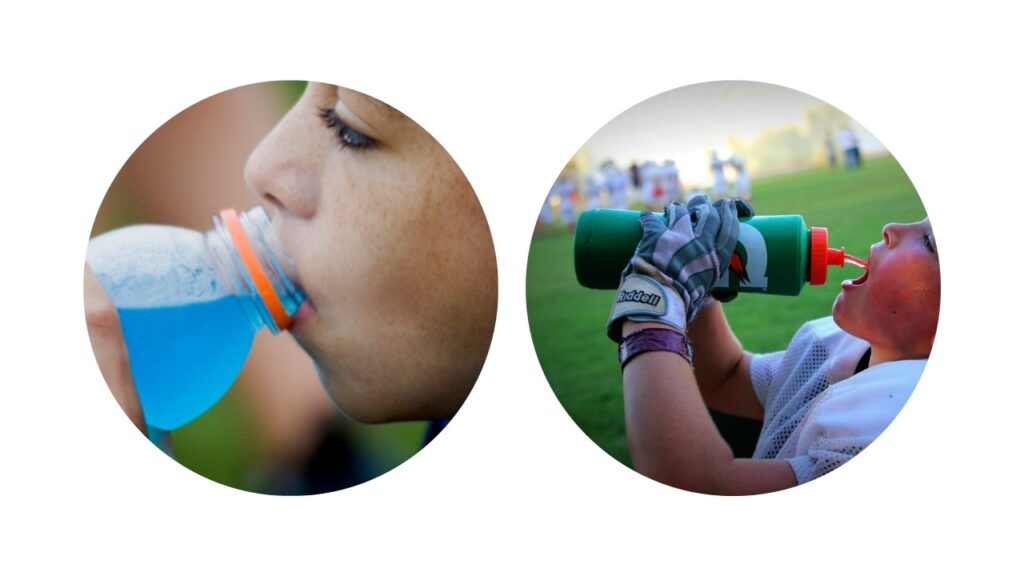
Bottled Water Tastes Like Plastic – Alternative Sources Of Drinking Water
Encouraging readers to consider alternative sources of drinking water is an excellent way to reduce their reliance on bottled water. Here are some alternatives to consider:
1. Invest In Reusable Water Bottles
If you’re looking for alternatives to bottled water, there are plenty of options available. One option is to invest in reusable water bottles and fill them up with tap water. Many cities have high-quality tap water that is safe to drink and tastes great.
2. Filtered Tap Water
Tap water is often just as safe and high-quality as bottled water, and it is usually less expensive. Installing a high-quality water filtration system at home can help remove impurities and improve the taste and quality of tap water.
3. Refill Stations
Many cities and towns have refill stations where individuals can fill up reusable water bottles with filtered tap water. These stations are often found in public parks, community centers, and other public spaces.
4. Public Fountain
Many public spaces have drinking fountains that provide safe and high-quality water. These fountains are typically free to use and can be a convenient way to stay hydrated while on the go.
5. Natural Springs
If you’re lucky enough to live near a natural spring, this can be an excellent source of safe and high-quality water. Just be sure to follow any local regulations and guidelines for collecting water from natural sources.
Considering these alternative sources of drinking water can reduce your reliance on bottled water and help minimize your environmental impact.
Additionally, investing in a high-quality water filtration system can provide a cost-effective and sustainable way to ensure that drinking water is safe and enjoyable to consume.
RELATED: Why Does My Water Bottle Smell Musty
Water Tastes Like Plastic Dangerous
Drinking water that tastes like plastic may not only be unpleasant but can also potentially be harmful. Plastic-tasting water can contain harmful chemicals such as bisphenol A (BPA) that can have adverse health effects over time.
Filtered Water Tastes Like Plastic
If your filtered water tastes like plastic, it can be worrying and unpleasant. Several factors can contribute to this, including the type of filter used, exposure to high temperatures, and prolonged storage. So, try to stop drinking filter water that tastes like plastic.
RELATED: Do You Need Water Shoes In Hawaii: Hawaii Beach Secret You Should Know
Gallon Water Tastes Like Plastic
If your gallon of water tastes like plastic, it can be unpleasant and concerning. The plastic taste may be caused by the type of plastic used in the container, exposure to high temperatures during transport or storage, or prolonged storage.
RELATED: Shelf Life Of Water Bottles – Everything You Need To Know
The Bottom Line
Drinking water that tastes like plastic can be unpleasant and potentially harmful. To avoid this, consider using glass or stainless steel water bottles, storing water in a cool and dry place, regularly replacing water bottles, and using a water filter.
Additionally, consider alternative sources of drinking water, such as filtered tap water, to reduce your reliance on bottled water. By implementing these solutions, you can help ensure that your drinking water is safe, high-quality, and enjoyable to consume.
RELATED: Merrell Men’s All Out Blaze Aero Sport Hiking Water Shoe
